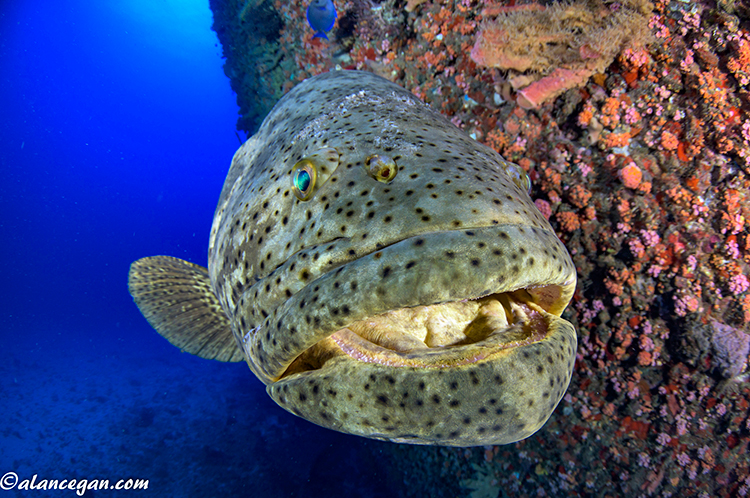
The Florida Fish and Wildlife Conservation Commission last week tentatively approved a limited harvest of goliath grouper in state waters, following a 30-plus-year closure imposed when the species was near collapse.
Commissioners, meeting in Miami, directed staffers to draft a proposed rule for consideration at a later meeting amid signs the large reef fish – formerly known as jewfish – are recovering from decades of overfishing.
Goliaths – the largest of the grouper species – can grow to hundreds of pounds. Heavily targeted for food and sport by anglers and spear fishers, their numbers tumbled in the late 1980s, prompting a 1990 harvest closure in state and federal Atlantic and Gulf waters.
Since then, the species has rebounded to the point that some anglers and spear fishers consider them a nuisance for stealing fish from their hooks and spears and want to reopen a harvest.
At the same time, recreational divers on Florida’s southeast coast who pay hundreds of dollars for underwater sightseeing excursions to reefs and wrecks where goliaths congregate to spawn from July through September want them protected permanently.
The controversy has flared since the early 2000s, and in 2017 commissioners considered allowing a highly controlled harvest based on three scientific stock assessments that flunked peer review. The proposal was tabled after the massive fish were heavily impacted by red tide outbreaks in the Gulf.
Jessica McCauley, the agency’s director of marine fisheries management, told commissioners last Wednesday the species can handle a “harvest conservative enough to keep recovery on track.”
She recommended drafting a rule similar to 2017 in state waters that would permit recreational hook-and-line fishing only, with no commercial or spear fishing allowed; limit the harvest to 100 fish per year for four years; administer the fishery under a tag system similar to the annual alligator sport season, charging up to $300 per tag; set a slot limit of 47 to 67 inches, or about 70-200 pounds; prohibit harvest during the July-September spawning season and protect known spawning sites.
Commissioners ultimately agreed via a 6-1 vote to move forward after hours of testimony from sport divers, spear fishers, fisheries scientists, recreational and charter fishers, and conservationists. Testimony ran more than 2-to-1 against reopening the groupers to harvest.
Said Jean-Michel Cousteau, an ardent marine conservationist and son of the late world-renowned ocean explorer Jacques Cousteau: “I am totally against this proposal. We need to protect goliath grouper forever in perpetuity like we do with manatees, turtles, dolphins and whales. They should not be taken for personal pleasure or for food.”
Retired Florida State University professor Dr. Chris Koenig, who’s been studying goliaths for more than 20 years, argued that the state’s own metrics for the species show the adult population is decreasing. His colleague Dr. Chris Malinowski said levels of mercury in the fish are high enough to warrant a consumer health advisory if harvest is allowed.
But commissioners said they can’t just keep the fishery closed indefinitely.
“We should applaud our successes,” said commission chairman Rodney Barreto. “I’m in favor of coming back with a very delineated list of line items for a limited take that wouldn’t disturb the dive industry and would provide additional access to this fishery. Just because we’ve been doing something for 30 years doesn’t mean we need to keep doing it the same way.”



